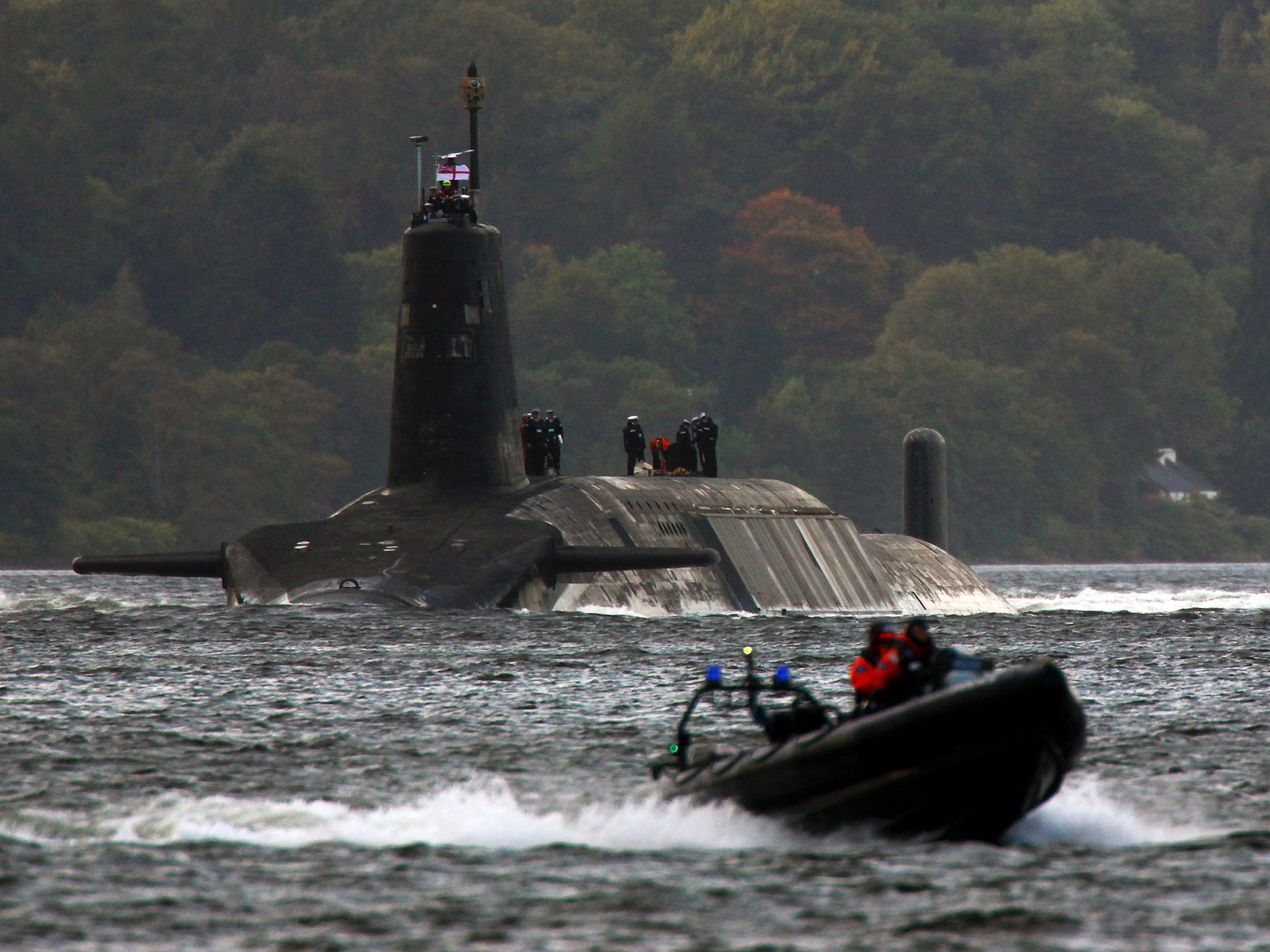The Trident nuclear weapons system could become obsolete during its lifetime, Labour warns
The shadow defence secretary says new technologies are being developed to expose submarines

Your support helps us to tell the story
From reproductive rights to climate change to Big Tech, The Independent is on the ground when the story is developing. Whether it's investigating the financials of Elon Musk's pro-Trump PAC or producing our latest documentary, 'The A Word', which shines a light on the American women fighting for reproductive rights, we know how important it is to parse out the facts from the messaging.
At such a critical moment in US history, we need reporters on the ground. Your donation allows us to keep sending journalists to speak to both sides of the story.
The Independent is trusted by Americans across the entire political spectrum. And unlike many other quality news outlets, we choose not to lock Americans out of our reporting and analysis with paywalls. We believe quality journalism should be available to everyone, paid for by those who can afford it.
Your support makes all the difference.The Trident nuclear weapons system could become technologically obsolete within its lifetime, Labour’s shadow defence secretary has warned.
Emily Thornberry said that emerging technologies could render Trident ineffective as a nuclear deterrent during its 30-year lifetime.
She said the development of under-sea drones and other technologies on the horizon might make a long-term lifetime spending commitment of between £100 billion and £160 billion unwise.
“The idea of the Trident replacement is that it can hide in the sea – if technology is moving faster than that then it may well be that Trident is not able to hide,” she told BBC Radio 4’s Today programme.
“If that’s right and we are to bet everything on mutually assured destruction then we have to be assured that it’s going to work. If it can’t hide any more that is a problem.
“It is right for the opposition to make sure that it works before voting for a commitment that according to Crispin Blunt would cost £167 billion.”
The shadow defence secretary is currently leading a review of Labour’s policy on nuclear weapons.
Ms Thornberry’s suggestion prompted criticism from Labour peer Admiral Lord West, who said she was talking “nonsense” and that the US and China were spending billions of pounds making sure submarines would stay undetectable.

The shadow defence secretary replied that the fact billions were being spent in this area proved that there was a serious risk that the stealth capabilities of such boats could be compromised.
She was reportedly shouted down at a meeting of the parliamentary Labour party last night by pro-Trident MPs who were angry that alternatives to Trident were being considered.
“Four, five, possibly six people at the PLP yesterday kicked off. They were not representative,” she said.
“Our view is that it’s not necessarily a binary option, we do need to look at all the possibilities.”
Ms Thornberry reportedly compared the Trident system, which was first developed during the Cold War in 1980, to the Spitfire plane.
Meanwhile shadow home secretary Andy Burnham, who supports Trident, said it would be difficult to reach agreement within the party.
“I was at the Parliamentary Labour party and it confirmed something that many of us had long suspected – that the debate about Trident is going to be very difficult,” he told the same programme.
“The discussion in the party has realistically been can you find a half-way house and most people have concluded that you can’t.”
Labour leader Jeremy Corbyn was elected as leader on opposition to Trident. The party policy remains, however, to keep it.
A vote on the issue at last year’s party conference in Brighton was narrowly avoided after delegates prioritised other issues for consideration.
The leadership was widely expected to lose such a vote as it lacked the support of trade union delegates on the issue, who are concerned about the programme’s implications on shipbuilding jobs.
The independent Trident Commission estimated that the system would cost £100 billion over its lifetime, though estimates compiled by Reuters with the help of Tory MP Crispin Blunt and official Ministry of Defence statistics suggest the cost could be as high as £167 billion.
Join our commenting forum
Join thought-provoking conversations, follow other Independent readers and see their replies
Comments